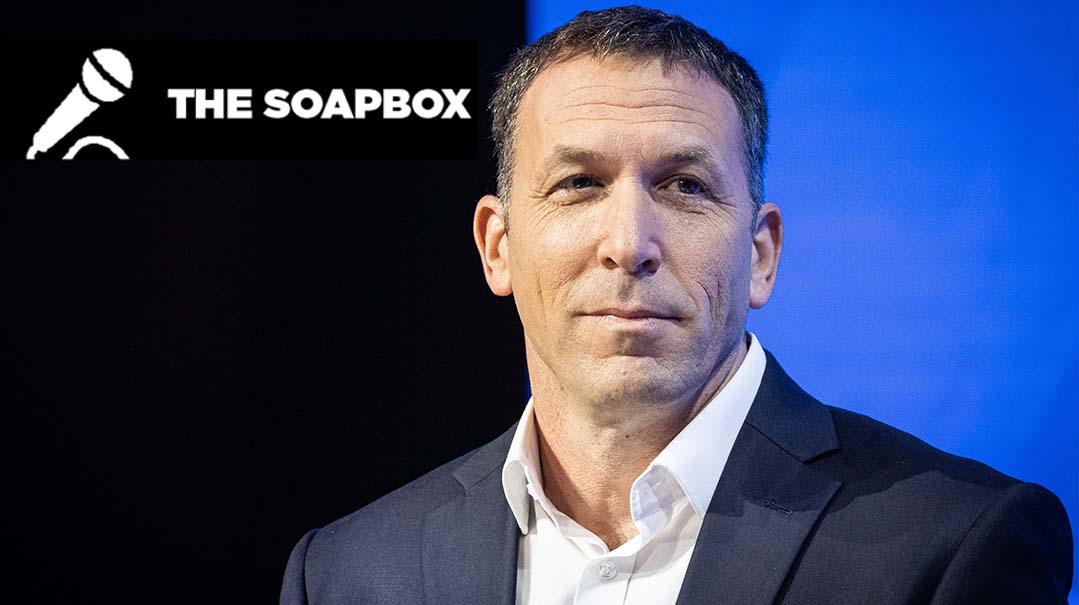Should The US Enact Strong Gun Control Measures?

The US continues to transfix the world with its gun violence epidemic

As an Israeli, used to a young and dynamic political system, I’m sometimes at a disadvantage debating politics with Americans. Israel’s basic laws — its equivalent of the Constitution — are changed every other day. Alternative prime minister? Direct elections? Why not? We’ll change a basic law or two.
In America, where the Constitution is a quasi-sacred document, things are not so simple. So if 200 years ago someone put in a few vague words about a “well-regulated militia” in the Second Amendment, that means that today, in 2021, one can easily buy an assault rifle, or even print a gun on a home 3-D printer. Why? It’s in the Constitution.
So although mass shootings have sparked the gun control debate time and time again in recent years, it seems that nothing will change under the Biden administration either.
Gun rights activists often argue that it’s people who kill, not guns. A firearm can and should be used in self-defense by someone living far from a police station to protect himself against a home invasion in the middle of the night, for instance. But over the years Second Amendment supporters have failed to back even the most sensible limitations to the right to bear arms. You’re not going to need assault weapons or large capacity magazines (capable of firing 50 to 100 rounds without reloading) to ward off a home invader. Why not outlaw those and reduce mass-shooters’ lethality? Oh, right, you can’t do that — it’s in the Constitution.
For decades the United States has been caught up in a shallow and demagogic debate in which supporters of the Second Amendment, who are in the majority, see every minor restriction as a slippery slope that will lead to the government “coming for your guns” (another claim I’ve often heard). Meanwhile, people continue dying because of outdated 19th century gun laws.
—Omri Nahmias
My hate affair with guns began 50 years ago, when my yeshivah high school debate club assigned me the task of arguing in favor of gun control. I did my homework, argued my case, and ultimately, lost the debate.
My revulsion was reinforced when armed robbers raided the Miami beauty salon in which my wife worked during our shanah rishonah. Baruch Hashem, no one was injured and Miami police arrested the perpetrators. People often claim that if more good guys had guns, they could foil such crimes, but sometimes it happens too fast for anyone to react.
Every year, I wince when reviewing Rashi’s description of Tuval Kayin prioritizing weapons manufacture in a generation desperate for the agricultural tools (which Noach developed a generation later) to cure the earth still cursed from Adam’s sin.
The world hasn’t changed much in 5,000 years. In a world where personal security feels tenuous, there’s no mass movement to trade swords for ploughshares.
Estimates of American gun ownership vary, but some 42 percent of all US households own as many as 300 million guns. You can’t confiscate them all. Last year saw a spike in US gun homicides to more than 19,000 and gun injuries to almost 40,000. One life lost or maimed to gun violence is one too many, but only the tiniest fraction of guns is used to kill.
The Supreme Court has upheld the interpretation that the Second Amendment’s right to keep and bear arms applies to private citizens. Both the federal and state governments have enacted gun control laws. Congress and state legislatures can add new restrictions and tighten loopholes, but also need to strictly enforce existing ones.
Indiana authorities failed to implement a “red flag” law that would have prevented mentally unstable individuals, such as last week’s mass shooter at the FedEx facility, from purchasing his murder weapon. That’s inexcusable.
Authorities must also keep tighter watch for disaffected people who leave a “legacy token” on social media. Psychologists have discovered that mass shooters often mimic past perpetrators and signal their murderous intent in advance. Israeli authorities have employed such techniques for years to intercept “ticking time bombs.”
Part of President Biden’s new gun control proposals call for tougher red flag law enforcement. In crafting legislation, the focus must be on what’s feasible and enforceable, given constitutional constraints and American history. The overriding goal should be to protect lives. Any debate should be framed as a public security issue, and not more grist for America’s ever-widening conservative-liberal divide.
— Binyamin Rose
The issue of gun control — especially in America — is a complex one and one that most citizens take as profoundly personal. But when we, as frum Jews, begin to consider it, a layer of complexity is added that our fellow Americans don’t need to worry about at all.
I grew up — as many of my friends did — in a home where a toy gun was not something with which we were allowed to play. I educate my children in this way as well. Put simply, gun culture is not something frum Jews should be participating in any way.
If there were a way to have a world without guns, that would be ideal. (See Yeshayahu 2:4.)
But we also need to remember that there is a reason America is anomalous in the approach to guns.
No other country approaches this issue the way we do — but no other country approaches many matters the way we do. America stands apart from even other democracies in how personal property and liberty are fundamental values that trump virtually everything else.
Alexis de Tocqueville explained why Americans see the right to bear arms as a fundamental freedom, while other democracies do not. It is, he said, because citizens of other countries put their safety primarily in the hands of the state. An American, he continues, sees himself as the ultimate party responsible for his own security. This goes hand-in-hand with how deeply Americans understand personal liberty.
Personal freedoms are what make this country greater than any other country the world currently knows of. And they are also why we, as Jews, can expect to carry on with our religious practices unmolested here — in ways we can’t expect to in any other country.
This is also why we ought to be voicing our concerns for how the left continues to attack the Second Amendment — by insisting those on the Supreme Court can rewrite the freedom enumerated in the Constitution. If they want to rewrite the Constitution, they ought to go through the amendment process. Allowing them to get away with rewriting it to fit their agenda means they would be able to do the same to the First Amendment as well, should they see fit to do that.
— Eli Steinberg
(Originally featured in Mishpacha, Issue 858)
Oops! We could not locate your form.













